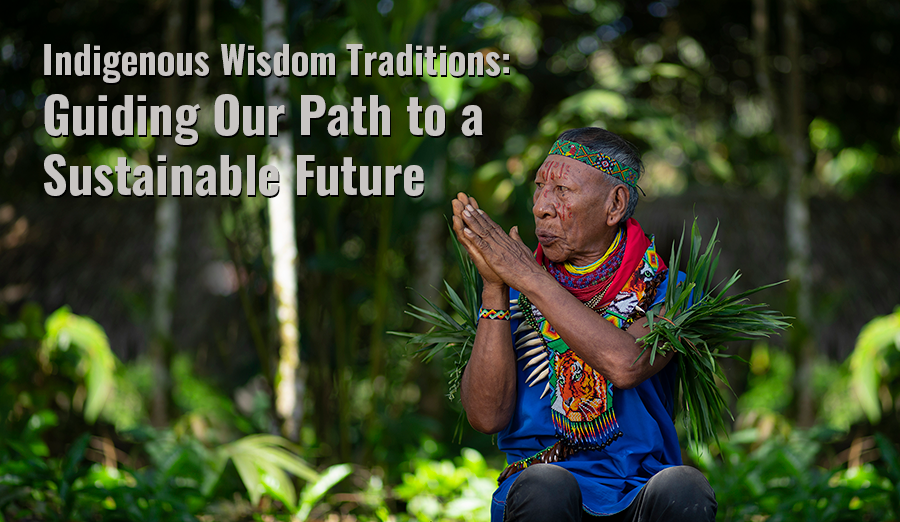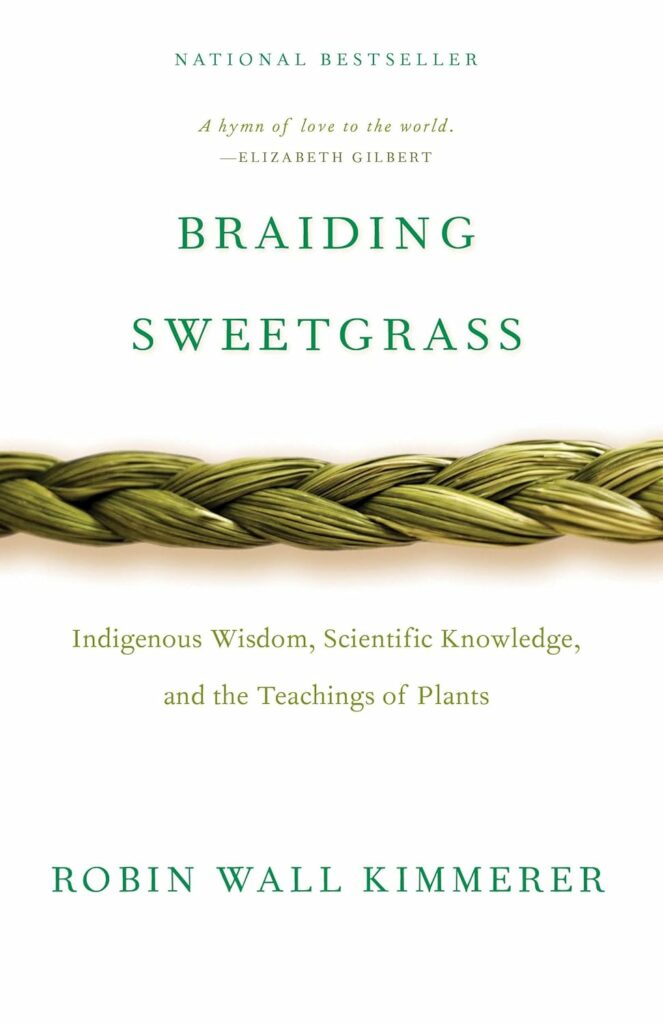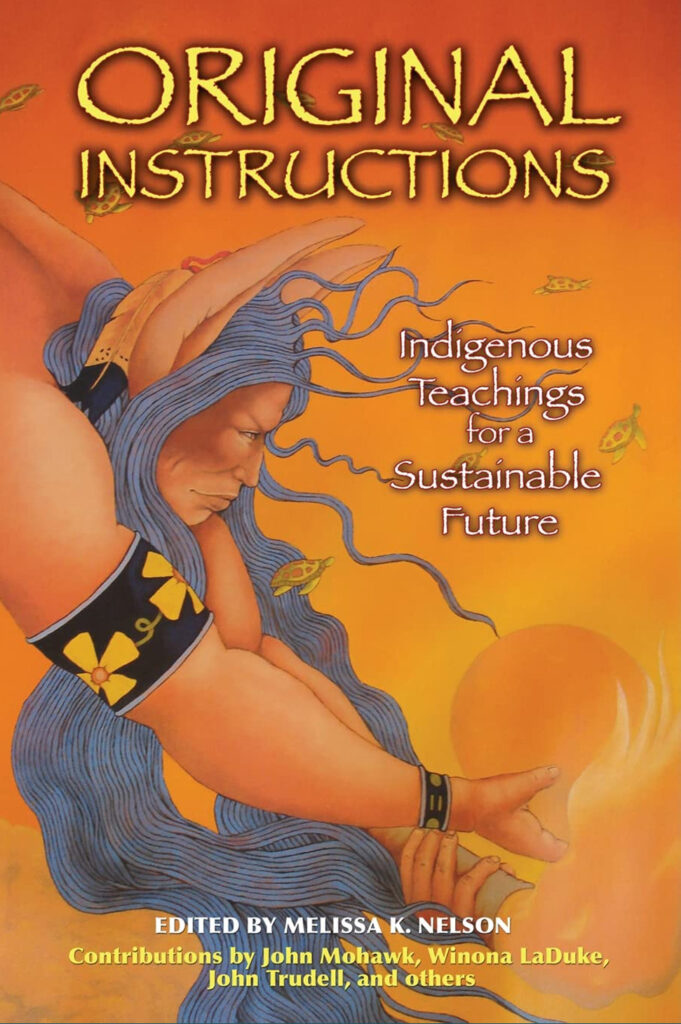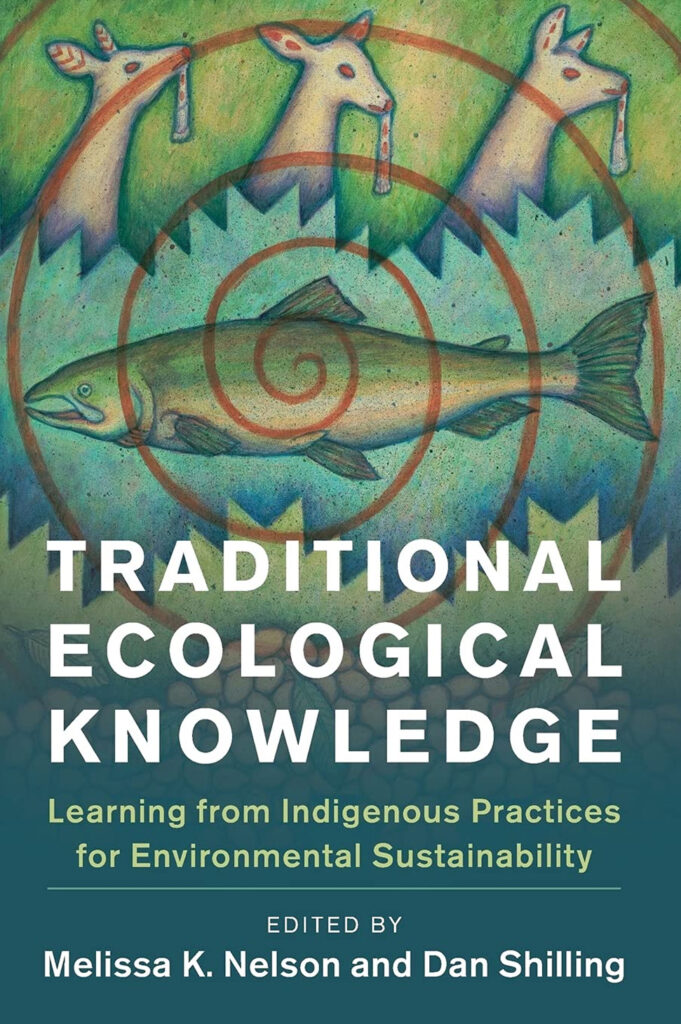
By Rubina Cohen
 In a rapidly changing world where environmental challenges are becoming increasingly pressing, there is a growing recognition of the profound significance of Indigenous wisdom traditions in guiding humanity towards a sustainable future. UNESCO’s perspective underscores this: “Indigenous knowledge is a rich and essential resource for addressing today’s global challenges.” Indigenous cultures around the world have for centuries maintained a deep connection with the land, its resources, and the wisdom passed down through generations.
In a rapidly changing world where environmental challenges are becoming increasingly pressing, there is a growing recognition of the profound significance of Indigenous wisdom traditions in guiding humanity towards a sustainable future. UNESCO’s perspective underscores this: “Indigenous knowledge is a rich and essential resource for addressing today’s global challenges.” Indigenous cultures around the world have for centuries maintained a deep connection with the land, its resources, and the wisdom passed down through generations.
One of my favorite authors, who has informed my knowledge on this topic is Robin Wall Kimmerer, author of Braiding Sweetgrass. She beautifully articulates the essence of Indigenous wisdom traditions: “In the teachings of the Potawatomi Nation, there is no word for ‘nature.’ Because everything is nature.” Indigenous wisdom traditions encompass a wide range of knowledge, including ecological, spiritual, and social elements. They are informed by a profound understanding of the interconnectedness of all life and a profound respect for the Earth.

Another fantastic go-to resource is Melissa K. Nelson, editor of Original Instructions, and Traditional Ecological Knowledge: Learning from Indigenous Practices for Environmental Sustainability. Melissa emphasizes the cultural significance of these traditions: “Indigenous wisdom traditions are the living memory of humanity’s ecological and cultural continuity.” Indigenous communities have, for generations, maintained practices that ensure sustainable resource management, ecological stewardship, and cultural preservation. Their practices are a testament to the profound wisdom held within these traditions.
- Sustainable Resource Management: Indigenous cultures have a long history of sustainable resource management. Their practices often involve hunting, fishing, farming, and gathering, all done in a way that ensures the health of ecosystems and the longevity of resources.
- Ecological Stewardship: Indigenous communities view themselves as stewards of the land. They recognize their responsibility to protect and nurture the environment, ensuring its health for future generations.
- Cultural Preservation: Indigenous wisdom traditions are closely tied to cultural preservation. These traditions hold the key to preserving languages, stories, rituals, and ceremonies that are integral to the identity of Indigenous communities.
- Spiritual Connection: Many Indigenous traditions emphasize the spiritual connection between humans and the natural world. This connection fosters a deep respect for all living beings and encourages responsible and sustainable practices.
National Geographic’s exploration of Native American Elders’ wisdom reveals an essential truth: “The ecological wisdom of Indigenous people holds lessons for a sustainable future.” As we face pressing environmental issues, Indigenous wisdom remains as relevant as ever:

- Sustainable Agriculture: Indigenous agricultural practices, such as permaculture and agroforestry, offer sustainable alternatives to conventional agriculture. These practices are more resilient in the face of climate change.
- Ecological Conservation: UNESCO points out that “Indigenous knowledge can help inform sustainable conservation strategies.” Indigenous knowledge of local ecosystems is instrumental in preserving biodiversity.
- Climate Change Mitigation: Indigenous communities are often at the forefront of climate change impacts. Their traditional knowledge, particularly regarding adaptation and resilience, is invaluable in addressing climate-related challenges.
- Community Resilience: The United Nations emphasizes the strength of Indigenous communities: “Resilient Indigenous communities can inspire community-driven solutions.” Their values of shared responsibility and community well-being offer a valuable blueprint for a more sustainable future.
UNESCO points out that Indigenous knowledge is threatened by cultural appropriation, loss of land, and the erosion of traditional knowledge. However, organizations like Seeds of Wisdom actively work to ensure the preservation and promotion of these traditions. The imperative, as Melissa K. Nelson suggests, is to provide the “breath of life” to these traditions, reigniting the sacred fires that hold the wisdom of Indigenous communities.
Conclusion
Indigenous wisdom traditions are a vital resource for guiding humanity towards a sustainable future. Their deep-rooted respect for the Earth, sustainable practices, and spiritual connection with the environment offer valuable lessons for modern society. By learning from these traditions and embracing their principles, we can move towards a world where all life can flourish, as we embrace our responsibility to care for the living world for the benefit of unborn generations.
SOURCE & REFERENCE MATERIALS:
Articles:
1. “Indigenous Knowledge and Sustainability” – A comprehensive article by the United Nations Educational, Scientific and Cultural Organization (UNESCO) that discusses the importance of Indigenous knowledge in sustainability.
– Read the article
2. “The Wisdom of Native American Elders” – A National Geographic article that explores the ecological wisdom of Native American elders.
– Read the article
Books:
1. “Braiding Sweetgrass: Indigenous Wisdom, Scientific Knowledge, and the Teachings of Plants” by Robin Wall Kimmerer – This book beautifully blends Indigenous wisdom and scientific knowledge, showing how these two perspectives can work together for a sustainable future.
– Find the book
2. “Original Instructions: Indigenous Teachings for a Sustainable Future” by Melissa K. Nelson – A collection of essays that highlight the ecological and cultural wisdom of Indigenous communities.
– Find the book
3. “Traditional Ecological Knowledge: Learning from Indigenous Practices for Environmental Sustainability” by Melissa K. Nelson – A collection of essays examining the importance of Traditional Ecological Knowledge (TEK) and how it can provide models for a time-tested form of sustainability needed in the world today.
– Find the book
Documentaries:
1. “Inhabit: A Permaculture Perspective” – This documentary showcases Indigenous land management practices and permaculture as sustainable approaches to living in harmony with the environment.
– Watch the documentary
2. “The Eagle and The Condor: From Standing Rock with Love” – A documentary that explores the Indigenous-led movement at Standing Rock and its connection to broader Indigenous wisdom.
– Watch the documentary
Websites:
1. UN Permanent Forum on Indigenous Issues – The United Nations’ resource on Indigenous issues, including reports, documents, and information on Indigenous knowledge and sustainability.
2. Indigenous Environmental Network – An organization working on issues related to environmental justice and sustainability from an Indigenous perspective.
These resources provide valuable insights into the significance of Indigenous wisdom traditions, their role in modern society, and how they can guide us in caring for the living world. Readers can explore these materials to delve deeper into the subject and gain a better understanding of the topics discussed in the article.



